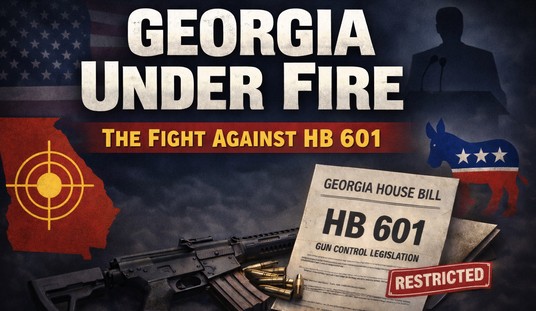As a history buff, I constantly have to remind myself that the past isn't some magical Utopia where everything was perfect. Some things were undoubtedly better while others were far worse. Which were which often depends on who you were in that past society, too, which is less than ideal on its own.
However, sometimes we need to remember the past because they didn't get everything wrong by any stretch of the imagination.
When it comes to the Constitution, though, history becomes far more important. After all, our Founding Fathers gave us a roadmap to our government, one we're meant to either follow as intended or replace with something we can follow.
And replacing isn't easy, nor should it be.
But it seems some think that history is a silly place and it has absolutely nothing to do with how we should view the Constitution, particularly with regard to the right to keep and bear arms.
Every month in America, 70 women are shot and killed by an intimate partner, according to data from the Everytown for Gun Safety Support Fund. Nearly 1 million women alive today in the United States have reported being shot or shot at by an intimate partner, and more than 4 million women have been threatened with a gun by a partner.
So on its face, the Supreme Court’s 8-1 decision last week upholding a federal law banning people under domestic violence restraining orders from possessing firearms seems like a common-sense conclusion: the Second Amendment must leave room to ensure that guns are kept out of the hands of people proven to pose a lethal threat.
Just going to interject for a moment to point out that the issue wasn't someone who was proven to pose a threat. At that point, Rahimi wasn't convicted of anything at all, which means he wasn't proven to be jack squat, which is the real issue.
Moving on...
But while the court landed on the correct outcome, a closer reading of the opinion — or more precisely the seven separate opinions that make up the ruling — shows that constitutional rules of the road for gun control measures remain about as clear as mud.
That’s due to an archaic legal standard based on “historical tradition” imposed two years ago by the Supreme Court that has not only stymied efforts by states and the federal government to keep Americans safe from gun violence but also confused policy makers, law enforcement, and, now, even members of the court itself.
Except that the "historical tradition" is the only real guide we have as to what the Founding Fathers actually thought of as an infringement. The fact that SCOTUS justices skirted that on Rahimi isn't cause for celebration because it now gives lower courts even less guidance than they had before.
Described as "tethering" in the piece's headline, the truth is that our Founding Fathers said nothing about reinterpreting the Constitution to be whatever we want it to be. They had firm ideas on what our rights were, what the restrictions on the federal government should be, and that history that's being dismissed so readily is our guide.
It's easy to say that history should be ignored because of X reason, but then what happens when someone decides it should be ignored in your case? What happens when a member of the media is silenced and that's justified because we really should ignore the history of our press freedom?
What happens in one aspect of our government influences others. In time, what happens with the Second Amendment will be applied to the First or the Fourth. Make no mistake.
History matters, if for no other reason than to remind us exactly what our Constitution means.








Join the conversation as a VIP Member